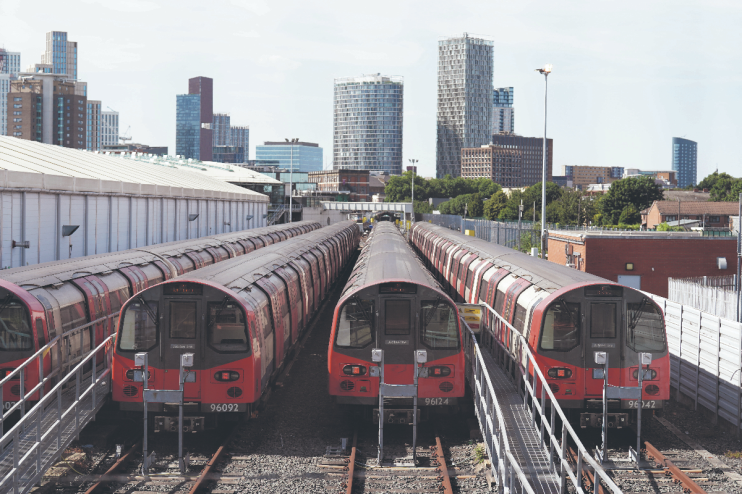‘A sticking plaster’: TfL’s £250m funding deal will not enhance London transport, government advisers warn

Transport for London (TfL)’s funding settlement is a “sticking plaster” and will not enhance the capital’s transport network, key government infrastructure advisers have warned.
The National Infrastructure Commission (NIC) said the government’s £250m capital funding settlement, announced in December, was welcome but would “not be sufficient” in the long run.
The deal came after City groups warned the operator was facing a financial “cliff edge” following years of lower commuter numbers in the post-pandemic period.
Since Covid-19, the government has propped up TfL to the tune of over £6bn. Yet calls have grown for a longer term arrangement to provide more certainty for the pipeline of necessary upgrades needed across the network.
The NIC recommended a five-year funding settlement, which would be “sufficient to enable both the renewal and enhancement of London transport.”
Elements of the London transport network, particularly the Bakerloo and Central Lines, have struggled in recent years without the necessary investment for critical upgrades, and delays and cancellations are soaring.
The Bakerloo Line trains are more than 50 years old and over a decade past their use date, prompting campaigners to warn that a “critical failure” is imminent without an urgent order for more rolling stock.
Meanwhile, the Central Line has been forced to introduce an emergency timetable and has at points operated with far less trains than it needs to run a peak service.
TfL is also in the process of formulating proposals for a £30-£40bn Crossrail 2 project to follow the Elizabeth Line’s roaring success, but they would be unlikely to go throuh given the current cash crunch.
The NIC’s calls come alongside reports that HS2 may make it to Euston as opposed to Old Oak Common, but with over a £1bn in taxpayer funding.
The government had been working for months to bring in private developers to fund a 4.5 mile tunnel that would guarantee the High Speed line links to the Central London terminus.
Responding to the report, John Dickie, Chief Executive of the lobby group BusinessLDN, said: “London’s ageing infrastructure requires investment to keep the city moving and growing sustainably.
“The National Infrastructure Commission rightly flags the urgent need for a long-term capital funding deal for Transport for London and the importance of ensuring HS2 reaches a regenerated Euston.
“Given the state of the public finances, crowding in private investment at scale will be essential to deliver the projects London and the UK needs. This will only be possible if politicians put an end to the constant chopping and changing that has plagued infrastructure delivery in recent years.”
Seb Dance, the Deputy Mayor for Transport said: “London is the engine of the UK economy – when London succeeds, our whole country benefits. As set out in the report from the National Infrastructure Commission, Transport for London needs a long-term funding deal to enable us to plan for the future and deliver the vital improvements our transport network needs.
“We know that investment in London’s economy and transport network has a positive impact on the wider UK economy. Two-thirds of TfL’s supply chain is based outside of London, with large numbers in the North West and West Midlands. A long-term settlement would significantly benefit these suppliers and help to create jobs and growth across the country.
“We’ve seen with the transformational Elizabeth line what long-term capital investment in our network can achieve. We will work with the Government to secure a viable long-term funding package so that we can continue delivering vital infrastructure, such as the Bakerloo line extension and the extension of the DLR to Thamesmead, and ensure Londoners have the world-class transport network they deserve.”
Rachel McLean, Chief Finance Officer at TfL said: “We welcome this call by the National Infrastructure Committee for TfL to receive a long-term funding deal. We are keen to work with transport authorities across the country to secure multi-year funding settlements like those that are in place for National Highways and Network Rail to ensure that public transport remains attractive for those living, working and visiting the capital.
“With a long-term funding deal, TfL will be able to deliver a programme of sustainable investment, aligning our national supply chains around long-term programmes and offering better outcomes for a lower cost. This will both support jobs and growth outside of London, and protect London’s position as a leading global city and economic powerhouse for the benefit of the whole UK.”
The government has been approached for comment.